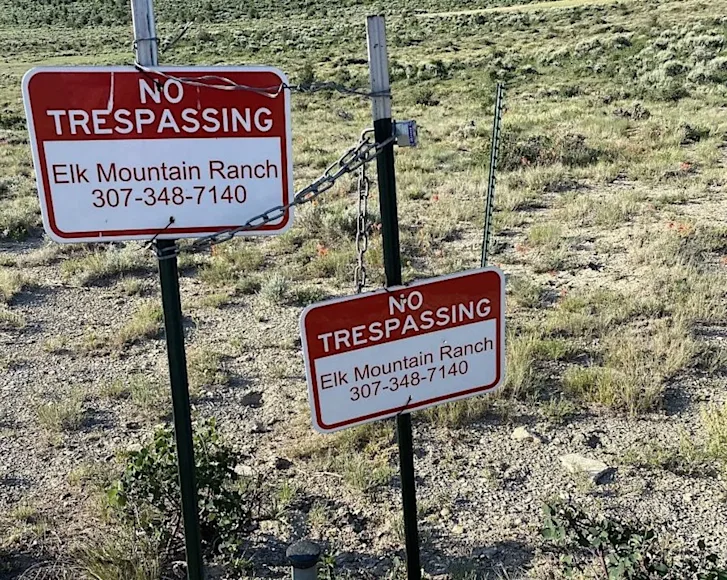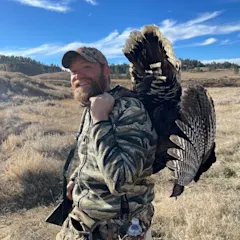Back in March 2025, the 10th Circuit Court of Appeals ruled that corner crossing—the act of moving from one checker-boarded parcel of public land to another—is now legal in 6 western states. Hunters and conservation groups celebrated the long-awaited decision at the time. But now the case could be headed to the Supreme Court of the United States (SCOTUS) for more litigation.
In a recent press release, Backcountry Hunters & Anglers (BHA) said that Fred Eshelman petitioned the US Supreme Court to overturn the 10th Circuit's March ruling earlier this month. Eshelman owns more than 23,000 acres in Carbon County, Wyoming under an LLC called Iron Bar Holdings. The corner crossing case originated in 2020 when he pressed charges against four elk hunters for using a ladder to cross between public land parcels that intersect with his vast Iron Bar Ranch. At the time, his attorneys argued that the men invaded Eshelman's airspace—though they never set foot on his private property.
As Field & Stream has previously reported, the 10th Circuit essentially legalized corner crossing on all federal lands, within the borders of Wyoming, New Mexico, Utah, Colorado, Oklahoma, and Kansas, when it ruled against Eshelman and in favor of the hunters back in March. But apparently, Eshelman is still fighting that decision.
According to BHA, he has hired "a national corporate law firm with extensive resources" to handle his Supreme Court appeal. And his petition asks SCOTUS "to reinterpret the 1885 Unlawful Inclosures Act in a way that would expand private property rights and significantly restrict public access," BHA said.
But if SCOTUS accepts the case and rules the other way, it could expand the public's access to corner-locked public lands well beyond the bounds of the 10th Circuit. Instead of just 3.5 million acres in the 6 states mentioned above, a favorable rulings on corner crossing from the nation's highest court would grant hunters access to some 8.3 million acres throughout the West. “This case represents a make-or-break moment for access to millions of acres of public lands across the West,” said Devin O’Dea, BHA's Western Policy & Conservation Manager. “But what’s at stake isn’t just access—it’s the very notion that public lands belong to the people.”
Led by its Wyoming Chapter, BHA has been out front in the effort to defend the Missouri hunters and legalize corner crossing since the earliest days of the case. They joined as a "friend of the court" early on and contributed more than $200,000 in legal fees. Now the organization is spearheading a new grassroots fundraising campaign in the face of more mounting legal fees hunters Bradley Cape, Zachary Smith, Phillip Yeomans and John Slowensky. As of this writing, they've raised roughly $3,000 toward their overall goal of $60,000.
It could be as late as mid-October before SCOTUS decides wether or not to take on Eshelman's appeal, the Wyoming-based Cowboy State Daily reports. In order to be heard, the case will need approval from at least 4 of the Supreme Court's 9 Justices.
Read Next: Trump Administration to Defend Protections for Alaska’s Famed Bristol Bay
"The Supreme Court doesn't need to hear this case,” the Missouri hunters' attorney, Ryan Semerad, told Cowboy State Daily. “But if it chooses to, it should do so to announce — once and for all — that private landowners cannot prevent the public from lawfully accessing public land. Just as every other judge who has heard this case has decided. We are ready to defend those correctly decided lower-court decisions to protect the rights of all Americans to access their public lands.”


